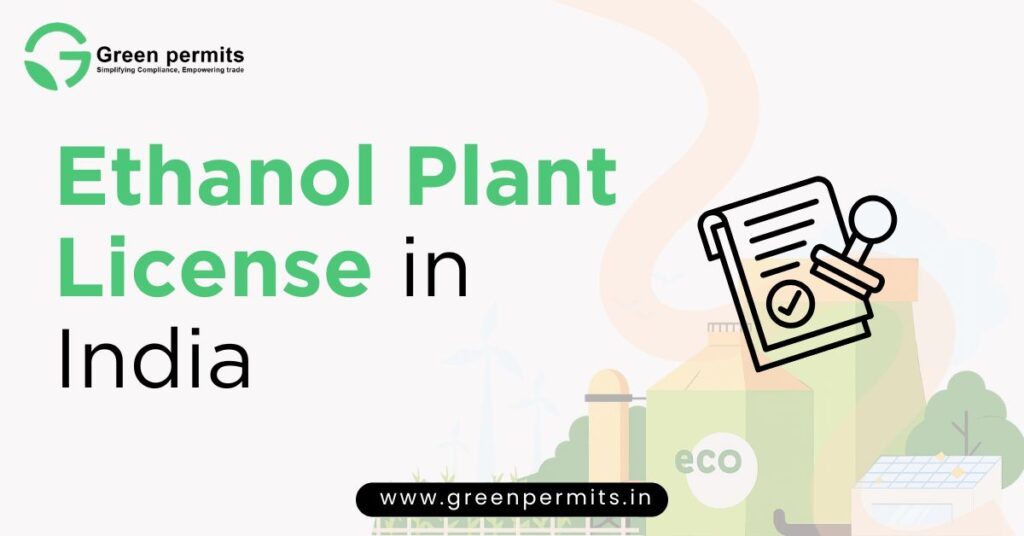Intrinsicly evisculate emerging cutting edge scenarios redefine future-proof e-markets demand line
Gallery Posts






Working Hours
| Mone - Fri: | 09:00 - 06:00 |
|---|---|
| Saturday: | 09:00 - 12:00 |
| Sunnday | 09:00 - 04:00 |
| Monday | 09:00 - 05:00 |
Intrinsicly evisculate emerging cutting edge scenarios redefine future-proof e-markets demand line






| Mone - Fri: | 09:00 - 06:00 |
|---|---|
| Saturday: | 09:00 - 12:00 |
| Sunnday | 09:00 - 04:00 |
| Monday | 09:00 - 05:00 |
India’s push towards energy independence is driving unprecedented growth in ethanol production. With the 20% ethanol blending target set for 2025, the country has already approved over 600 ethanol plants and produced nearly 600 crore litres in 2023, a 45% jump from the previous year.
But here’s the catch: while government incentives and loans worth ₹41,000 crore were sanctioned in 2023–24, no ethanol plant can operate without the right set of licenses and approvals. For businesses, this often becomes the most complex and time-consuming step.
This guide breaks down the licenses required for ethanol plants in India, the process to obtain them, costs and timelines, and what businesses risk if they skip compliance.

Ethanol is not just another fuel additive — it’s a national priority. According to the Ministry of Petroleum and Natural Gas, ethanol blending saved India over ₹30,000 crore in crude oil imports in 2023. This makes licensing critical, because:
Takeaway: Licensing is not red tape — it’s the foundation for securing OMC (Oil Marketing Company) supply contracts and bank financing.
Ethanol plant licensing is a multi-layered approval process involving both State and Central regulators.
| License | Issuing Authority | Validity / Notes |
|---|---|---|
| Distillery / Excise License | State Excise Department | Mandatory for alcohol/ethanol production; renewable every 1–5 years |
| Consent to Establish (CTE) & Consent to Operate (CTO) | State Pollution Control Board (SPCB) | CTE before construction; CTO after commissioning |
| Environmental Clearance (EC) | MoEF&CC / SEIAA | Needed for plants above threshold capacity |
| Hazardous Waste Authorization | SPCB | For effluent/by-product management |
| BIS Certification (IS 15464) | Bureau of Indian Standards | For supplying fuel ethanol to OMCs |
| PESO License | Petroleum & Explosives Safety Organisation | For ethanol and molasses storage tanks |
| Factory License | State Labour / Industrial Dept. | Worker and operational safety |
| Fire Safety NOC | State Fire Department | Required before plant operation |
Takeaway: Missing even one of these approvals can halt production indefinitely.
Getting an ethanol license isn’t a one-form exercise. It involves parallel applications across agencies.
Takeaway: With professional support, the process can be completed in 6–12 months, depending on state timelines.
Setting up an ethanol plant requires both capital investment and recurring license fees.
| License | 2024 Approx. Fee | 2025 Updated Fee |
|---|---|---|
| Excise License | ₹5–15 Lakhs | ₹6–20 Lakhs (varies by state) |
| SPCB CTE + CTO | ₹1–3 Lakhs | ₹1.5–4 Lakhs |
| BIS Certification | ₹1.8–2.2 Lakhs | ₹2–2.5 Lakhs |
| PESO License | ₹50,000–1 Lakh | ₹60,000–1.2 Lakh |
| Factory & Fire NOC | ₹1–2 Lakhs | Similar |
Takeaway: Licensing adds ~₹10–30 Lakhs to project cost but unlocks eligibility for loans and OMC supply deals.
Non-compliance is expensive.
Takeaway: Proactive compliance costs less than downtime and penalties.
A Haryana-based agribusiness wanted to diversify into grain-based ethanol.
Takeaway: Common pitfalls — misfiled documents, mismatched data — can delay licensing by months.
Licensing isn’t just compliance — it’s ESG strategy.
Takeaway: Licensed ethanol plants strengthen both compliance and corporate ESG scores.
Licensing is multi-authority: Excise Dept (distillery), SPCB (CTE/CTO), MoEFCC (EC), BIS (certification), PESO (storage).
Typically 6–12 months, depending on state processes and document readiness.
CTE is valid for 1–2 years (till construction); CTO for 5 years (renewable).
Yes, BIS IS 15464 is mandatory for fuel ethanol supplied to OMCs.
Penalties include ₹1 Lakh/day under EPA, excise seizures, and plant closure orders.
Yes, through JV or subsidiary, subject to approvals from Excise, SPCB, MoEFCC, and BIS.
Getting an Ethanol Plant License in India is challenging, but it’s the key to entering a government-backed, ₹50,000+ crore industry.
📞 Call: +91 7835006182
📧 Email: wecare@greenpermits.in
🌐 Visit: www.greenpermits.in
Green Permits helps businesses with end-to-end ethanol plant licensing, environmental approvals, BIS certification, and ESG reporting — ensuring zero compliance risks and faster time-to-market.